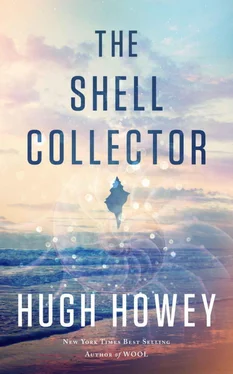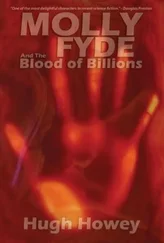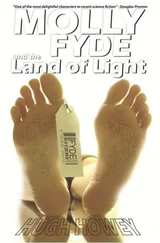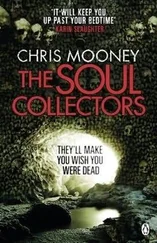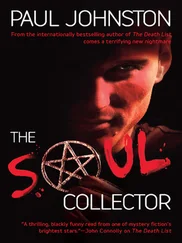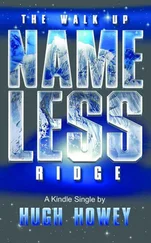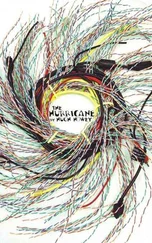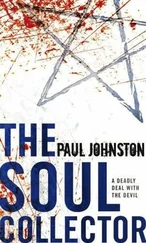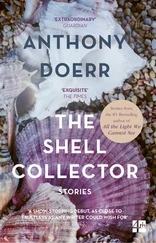“If you don’t know much about your grandfather, why do you object to me writing about him?” I ask.
“I said I don’t remember much about him, not that I don’t know much about him.”
“Fine. Tell me what you know. Make me believe he was a good man and not someone who got rich while this world went to shit.”
Wilde turns away from this accusation, almost like I’ve slapped him. It feels like I’ve slapped him. Like I’ve said in a sentence what my series of pieces is all about. He stares for some time at the horizon, that gray line where the sea kisses the sky.
“After my grandmother died, my grandfather lived alone in a shack on a spit of beach. He wasn’t anything like his father or my father. Or me, for that matter. I know what you’re going to write, because it’s the history everyone has written. With his vast wealth, my grandfather bought up near-coastal land, what he knew would become prime beachfront property once the sea levels crept up, and then he kept that land for himself. He blocked it off from the world—”
“And none of that is true?”
Wilde shakes his head. “It’s… more complicated than that. My grandfather, he… wasn’t a huge fan of people. Well, it’s not that he didn’t like people, I think he just enjoyed the quiet. Which is why I don’t want to see your story, don’t want people talking about him. He wouldn’t approve. And you can do your series without involving him. I’ll tell you whatever you want about me and you can run that instead.”
I make a note here to dig even deeper into Ness’s grandfather. Telling me not to look into something is the wrong play if that’s what he really wants. Unless Ness knows this and is sending me down a blind alley.
“What about your father, then? He didn’t seem to mind the limelight.”
Wilde laughs, and I glance up from my notebook in time to see him with his head tilted back, white teeth flashing, wrinkles around his eyes. It’s a dangerous laugh. I tell myself it’s another prop, not to believe it.
“My father was the exact opposite,” Ness says. “He hated people, but he loved taking their money. And he was good at it. I think it skips a generation, that drive. My old man took after his grandfather. As a kid, he climbed over oil rigs like they were his private jungle gyms. Didn’t spend much time with his own father. The oil company was his life, his true family. And he took the company to another level, daring other industry leaders to catch up, taunting them, showing them where to drill, correcting their mistakes in public—”
“He wasn’t scared of the competition?”
“No. My father knew he was the smartest man in any room.”
“What about women?”
Wilde shrugs, seems confused. “My dad only had eyes for my mother.”
“No, I mean… you said smartest man in any room. What about women?”
“I misspoke,” Wilde says. “Sorry. It sounded sexist, didn’t it?”
I don’t answer, just let the accusation hang. “It sounds like resentment of absent fathers runs in the family. Boys raised by their grandfathers. Is that why you’re protecting your grandfather? You say you don’t remember much, but maybe he was there for you in those first years in a way your father wasn’t. Showered you with gifts, or let you—”
“That’s not it,” Wilde says.
“So what is it, then?”
Wilde takes a deep breath. “My great-grandfather gave us the world,” he says. “This was his gift to us. He made sure I would never have to work a day in my life, made sure my dad and his dad would have everything. He gave us the world.”
“You say that like it’s a bad thing. Like it makes you sad.” I switch the pen to my other hand and wipe my palm on my skirt. There’s an intensity in Wilde’s eyes that I can’t put my finger on, a glare at some distant past. That’s what I want: whatever he’s thinking right then. I wonder if I should push him for more; I wonder if I should show him the shells; but I worry even more that I might frighten some wary truth away.
Wilde sets his wine down and stands up. He is frozen in place for a moment, like he’s locked in a fight-or-flight decision. He walks to a side table, opens a drawer, and pulls out a book. It looks like a Bible, and I wait for him to open it and quote scripture. I wonder if Ness has found God these past years, if that’s why he has withdrawn from the world. Perhaps he is seeking forgiveness for what he and his family have done to the earth.
But as he brings me the book, I can see that it’s a leather journal, worn soft. He hands it to me. The leather strap around the journal doesn’t match the cover; the original probably wore through and fell apart. I slip the strap off and open the notebook. Pages of neat writing. It’s almost calligraphic in its beauty, its timelessness. The pages feel on the verge of growing brittle.
“Part of the reason I asked you here was so you could read this,” Ness says. “It was my grandfather’s journal. His private thoughts. I don’t think he ever meant for anyone else to read it.”
My palms are sweating. Source material on the Wilde family is impossibly hard to find. It all comes secondhand or through interviews. As I flip the pages, a poem stands out for its short stanzas and the way it’s centered on the page. I scan the first few lines:
The sea whispers and sighs
her last breaths upon the beach.
She is dying, and all I want
is to end her suffering.
“I need you to sign this before you read any more,” Ness says.
I glance up. Ness has placed a thick stapled document and a pen on the coffee table.
“What is this?” I ask.
“A non-disclosure agreement. If you ever run a word of what’s in that book, my lawyers assure me that I’ll own not only you, but the Times as well.”
“Is that so?”
He nods. “That’s so. Of course, you can choose not to read it if you don’t want to know the truth.”
“If I can’t write about what’s in here, then why show it to me?”
Ness frowns. It’s the most serious I’ve ever seen him, in person or otherwise. “Because if you read what my grandfather wrote,” he says, “you won’t write anything about him. Ever.”
I have to admit that I’m intrigued. Intrigued enough to sign the document. This is not quite why I came here, but as a reporter I know not to turn down opportunities that arise unexpectedly. Besides, I like letting him know that my mind is open, that I’m only interested in the truth, before I grill him about the shells. And the journal is simply too good to pass up.
As I leaf through it, I begin to suspect that Ness didn’t ask me here to interview him; he brought me here to commune with a dead man. He leaves me alone with the journal and the amazing view, as if this has been his plan all along. He tidies up in the kitchen, disappears for long stretches, passes through now and then like an intermittent wind. My wine seems to fill itself once or twice. The sky reddens then darkens. Occasional ships float by in the distance like stars on the move, while the actual stars hang like diamonds in the sky. And to the south, the horizon glows every ten seconds or so as a nearby lighthouse throws its beam in great orbits of the sky.
But all of this is backdrop to the notebook; they are the things I see when I glance up to digest what I’ve just read. I scan entries spaced months and even years apart. Angry screeds at the beginning—dating back eighty years—give way to confessions and measured doses of guilt later in life. One note in particular catches my eye. Halfway into the day’s entry, written over sixty years ago:
How many children reject their parents’ dreams, and how many are diametrically opposed? And of the latter, how many of those children forewent riches from questionable sources? How many cast off to live adrift, when the answer to reparations lay in their inheritances?
Читать дальше
